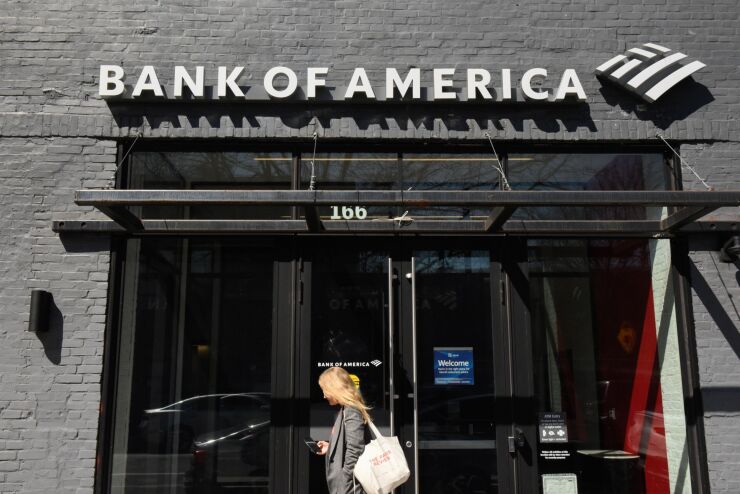
Two of Wall Street's largest lenders are questioning the Federal Reserve's projections for their future income, the latest sign of tension around
Bank of America and Citigroup said Monday that they are in discussions with the central bank after their own estimates differed from those of the Fed. The results of the yearly exams and projections are closely watched because they are a key factor in determining how much banks can return to investors in payouts.
The results released last week showed that the biggest 23 U.S. firms can withstand a severe global recession and turmoil in real estate markets. Although that's broadly a positive sign for the industry, the tests remain a flash point. Some advocates argue the exams need to be much tougher, while industry groups are girding to fight a looming overhaul.
Since taking over as the Fed's top bank watchdog last year, Michael Barr, the vice chair for supervision, has said the central bank is considering changes that will assess more types of financial stress as part of a broad look at lenders' capital requirements. He has said that the changes will seek to address issues raised by the recent bank failures.
Monday's questions from two of the biggest U.S. lenders about the Fed's projections adds another wrinkle. Bank of America said in a statement that it was talking to the Fed to "understand differences in other comprehensive income over the 9-quarter stress period." Separately, Citi
A spokesman for the Fed declined to comment.
Last week, Citi announced it would raise its dividend to 53 cents from 51. Unlike most of its major rivals, Citigroup will face a higher stress capital buffer in the coming quarters, the firm said. Bank of America has yet to announce its dividend plans. JPMorgan Chase, Wells Fargo, Morgan Stanley and Goldman Sachs Group led U.S. banks in announcing higher dividends last week.
In one example of the discrepancy, the Fed projected that Bank of America will post $22.3 billion in accumulated other comprehensive income over a nine-quarter period under a hypothetical set of adverse economic conditions. Bank of America, however, projects $12.5 billion for that metric during the period which began in the first quarter of this year. The Fed also expects Bank of America to record a $23 billion pretax loss during that time frame while the company forecasts an approximate $52 billion cumulative pretax loss.
"In short, BAC's internal test seems to imply much less capital benefit from AOCI included in capital than did the Fed's," Piper Sandler analysts led by R. Scott Siefers wrote in a note. Still, even eliminating that benefit could keep the bank below the 2.5% minimum stress capital buffer threshold, they wrote. "But we await some clarity before BAC makes any capital announcements," they said.
As for Citigroup, its own stress test results predicted $64.4 billion of non-interest income in the nine-quarter period. The Fed forecast $43.9 billion.
Each year the Fed tests the banking giants to see if their balance sheets are sound enough to weather severe stress in the economy and financial markets. The results indicated that firms would have enough capital to absorb as much as $541 billion of losses in a doomsday scenario, even if unemployment were to hit 10% and the stock market were to plummet 45%.
The results also injected some confidence into the banking industry after a tumultuous first half of the year. Typically clearing the exam sets the stage for banks to return billions of dollars to investors through dividends and buying back stock.
— With assistance from Katanga Johnson






